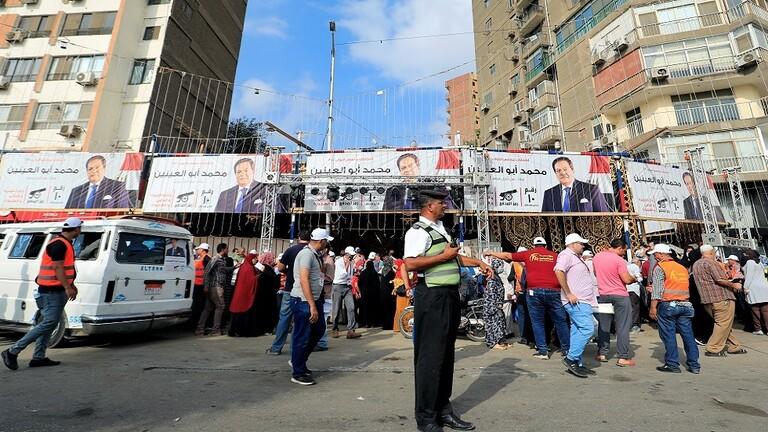Ethiopia announced its total rejection of the quadripartite mediation proposed by Egypt and Sudan and declared its commitment to African meditation.
The Ethiopian Foreign Ministry spokeswoman Dina Mufti stated that Addis Ababa will only adhere to the negotiations under the patronage of the African Union. He indicated that the problem of the Renaissance Dam could be resolved through the current negotiation channels which doesn’t require the participation of any other party.
In a press conference over the dam, Mufti emphasised the belief of his country that the African problem could be resolved with African solutions. He added that the African Union and the Republic of Congo (as the president of the African Union) have the full capacity to achieve win-win solutions for everybody. He also said that Ethiopia has the inherent and legal right to use its water resources fairly in a way that doesn’t cause significant harm to the downstream states. Mufti explained that the issue of the dams’ safety and information sharing raised by the Sudanese side have been addressed properly. He also reiterated Addis Ababa’s rejection of Cairo’s proposal to accomplish a binding tripartite legal agreement as he said the tendency to be committed to the status quo of the colonial agreement seeking a binding agreement is unacceptable.
The Ethiopian rejection comes after the Sudanese proposal supported by Cairo concerning the development of the negotiation method under the patronage of the African Union through forming an international quadripartite mediation led by the Republic of the Congo, as the president of the African Union, with the participation of the United Nations, the European Union and the USA, in addition to the African Union to mediate in the current negotiation. The two countries called on the four sides to adopt the proposal, declaring the acceptance of it and initiating negotiations as soon as possible.
On February 24, the Egyptian presidency issued a statement to reaffirm that Egypt supports Sudan’s proposal to establish an international quartet to mediate and resolve the failing Renaissance Dam negotiations that have been failing for over 10 years. The statement added that al-Sisi and el-Burhan agreed to reject any unilateral measures aimed at monopolising the resources of the Blue Nile. The Egyptian-Sudanese attempt, to push for an international quartet mediation, comes while the Ethiopian side approached the start of a second phase of filling the Renaissance Dam after finishing the first stage last July unilaterally without any agreements with the downstream states.
On the other hand, Sudan continues its efforts to mobilise the international position around its proposal, supported by Egypt which calls on a quadripartite mediation. During a phone call with the Kenyan President Uhuru Kenyatta, whose country is a member of the UN Security Council for the African Group, the Sudanese Prime Minister Abdalla Hamdok provided an explanation regarding Sudan and Egypt’s request to expand the mediation. Also, he had a phone call with the Secretary-General of the United Nations, António Guterres, during which he discussed the updates of the Renaissance Dam negotiations.
Cairo’s position is no different from Sudan in this regard, as Egypt sees Ethiopia’s insistence on taking unilateral steps as a threat to Egyptian national security. The two countries expect a decrease in the quantities of incoming water in the upcoming period, as a result of starting the second filling of the Renaissance Dam. Khartoum and Cairo believe that the proposal achieves the desired Ethiopian development and does not inflict serious damages on the two downstream countries, according to what the three countries pledged in the Declaration of Principles, signed in Khartoum in 2015, in accordance with the principles of international law. They also developed three steps, leaving no room for doubt in the future. The first is for coordination and follow-up of implementation and recording any violations, the second to resolve any disagreement in the interpretation of what was agreed upon and how to implement it, and the third to ensure the implementation of international law in any future projects.
The rejection of Addis Ababa to the mediation escalating the crisis and the failure of negotiations put diplomacy at stake, especially after Addis Ababa announced it was ready to begin the second fill of the dam next July. The Renaissance Dam, which Addis Ababa is about to complete, is still subject to disagreement between the three countries (Egypt and Sudan on the one hand, and Ethiopia on the other hand) who have been engaged in failing negotiations for about ten years now.
On the one hand, Addis Ababa insists on filling the dam, even without reaching an agreement with Cairo and Khartoum. While the latter two (who represent the two downstream states) stress their principled position, which is the need to reach a binding legal tripartite agreement on filling and operating the dam that preserves and takes into account the interests of the three parties, to ensure that their annual share of the Nile water is not affected. No final agreement was reached on the dam crisis despite the multiple negotiating rounds, which were under the patronage of Washington previously and the African Union in recent months, in addition to tripartite meetings, the most recent of which was in January.





Recent Comments